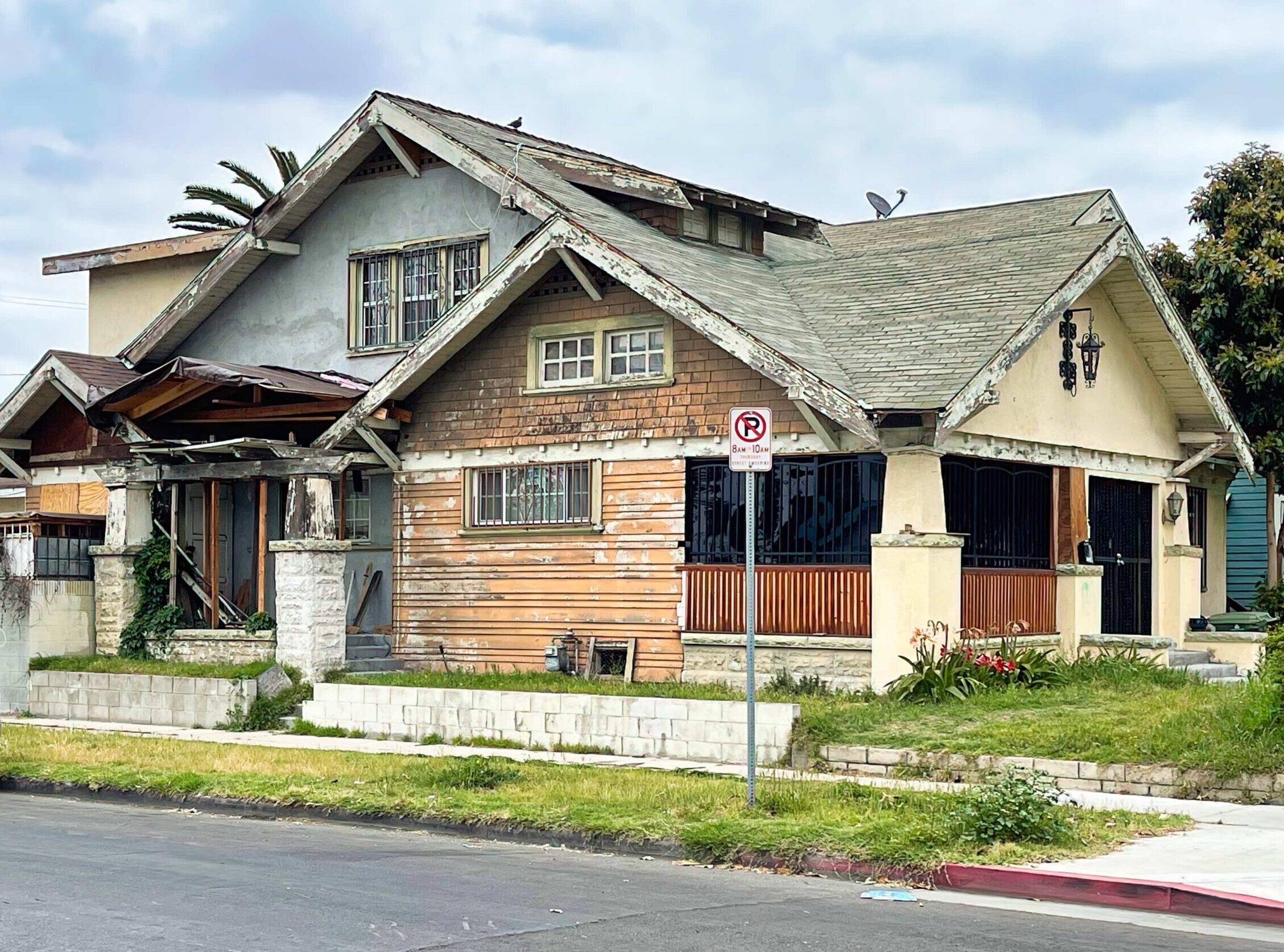By Iris Craige, Assistant Director of Policy and Advocacy
August 8, 2025
On July 23, 2025, the Los Angeles Housing Department (LAHD) released a much-anticipated report-back to the Los Angeles City Council about improvements to the Systemic Code Enforcement Program (SCEP) and Rent Escrow Account Program (REAP). These improvements, which were prompted by community input gathered by SAJE and other organizations in the Keep LA Housed (KLAH) coalition, are designed to address the concerns of tenants across Los Angeles living with code violations and other habitability issues.
What is SCEP?
SCEP is Los Angeles’s proactive, primary tool for ensuring rental housing is safe and habitable. First adopted in 1988, it applies to all rental housing with two or more units. Under SCEP, LAHD must conduct inspections on qualifying units once every four years. If violations are found, the landlord has 30 days to make repairs, with the opportunity to request up to two 30-day extensions. If violations remain unresolved, LAHD can take further action, such as putting the property into REAP or pursuing civil or criminal litigation.
To fund SCEP, the city charges an annual fee of $67.94 per rental unit. Landlords are allowed to pass through 50% of this fee onto tenants, which comes in the form of a $2.83 month surcharge on top of rent.
More Room for SCEP Improvement
We were glad to see that LAHD’s July 23 report-back does incorporate some of our feedback and recommendations, including modernizing the REAP payment system, expanding tenant outreach efforts, and upgrading the Property Activity Report to give tenants better access to inspection information. But we would like to see a few more key priorities addressed.
1. Impose Stricter Enforcement Deadlines
We need to put more pressure on negligent landlords to comply with the law and reduce the amount of time tenants must live in hazardous conditions. That means holding landlords to firm deadlines for making repairs and enforcing consequences when they don’t. We’d like to see LAHD:
- Require abatement begin within 48 hours
- Enforce a firm 21-day deadline for resolving violations
- Automatically refer cases to REAP when compliance deadlines are missed
2. Set Quality Standards for Repairs
LAHD’s report suggests “best practices” for repairs, such as encouraging landlords to hire professional contractors for complex work and distributing Cal-EPA’s guidance on hazards like lead-based paint. But these best practices are all voluntary—without actual requirements, there is no guarantee that repairs will be done correctly. We recommend the city set some stronger standards by:
- Requiring the use of licensed professionals for any repair exceeding $500, especially for specialized work
- Photographing the completed repairs—not just the violations—as part of LAHD review process
3. Impose Penalties for Refusing SCEP Inspections
When a landlord blocks a SCEP inspector from entering their building, LAHD recommends sending a “last chance” letter to let them know compliance isn’t optional. But without a financial penalty attached, the landlord may continue to resist inspection. We recommend adding a $150-per-unit fine.
4. Include Single-Family Home Rentals in SCEP Inspections
Single-family homes remain exempt from SCEP inspections, even though evidence shows these types of rentals are at high risk for habitability violations. We recommend expanding SCEP to include single-family-home rentals so that all of Los Angeles’s renters are covered.
5. Stop Requiring Tenants Pay for SCEP
Landlords are responsible for maintaining safe and habitable rental properties—it’s why we pay them rent. SCEP inspections should be part of the cost of doing business for landlords, and they should be required to pay the entire assessment. Tenants who are already burdened by the high cost of housing in Los Angeles should not have to pay extra to ensure their units are safe.
6. Improve Language Access throughout the SCEP Inspection Process
Currently, LAHD provides its “Introduction to REAP” materials only in English, Spanish, Korean, and Cantonese. While important, this leaves out many tenants who speak other widely-used languages in Los Angeles, such as Tagalog, Armenian, Russian, Vietnamese, and Thai. Although translation into additional languages is reportedly underway, there is no clear list, timeline, or commitment. Language access must go beyond written materials. Tenants need interpretation when filing complaints, during inspections, and when receiving results or enforcement notices. Without it, non-English-speaking tenants face serious barriers to reporting violations, understanding findings, and advocating for timely repairs. We urge the city to expand translation to all threshold languages and provide real-time interpretation throughout the SCEP and REAP process to ensure every tenant can fully exercise their rights.
7. Incorporate Violation Data with TAHO (Tenant Anti Harassment Ordinance) Data to Identify Bad Actors
While we appreciate SCEP inspectors trying to keep an eye out for harassment indicators, we need a better system for identifying bad actors and putting them on the record. Since LAHD has access to code violation data and TAHO allegations, we recommend the city integrate this data to identify landlords who are systematically harming tenants.
8. Use REAP as a Pathway for Social Housing
The Los Angeles City Council had motioned the LAHD to report back on “property disposal to community land trusts,” no specific pathways, pilots, or timelines are outlined in LAHD’s report-back. This is because the city is currently case-managing properties that have been in REAP for years, even decades. Tenants should not have to bear this burden of noncompliance indefinitely. SAJE has already reached out to LAHD about potential pathways for bringing chronically neglected properties under or community control in the form of land trusts, tenant-managed housing, or other models of collective ownership.
SAJE appreciates LAHD’s ongoing efforts to improve the SCEP and REAP programs and offer these recommendations in the spirit of collaboration toward our shared goal of ensuring safe, healthy, and dignified housing for all Angelenos. We look forward to continuing our advocacy within the KLAH coalition and to working alongside city officials to strengthen healthy housing across Los Angeles.

